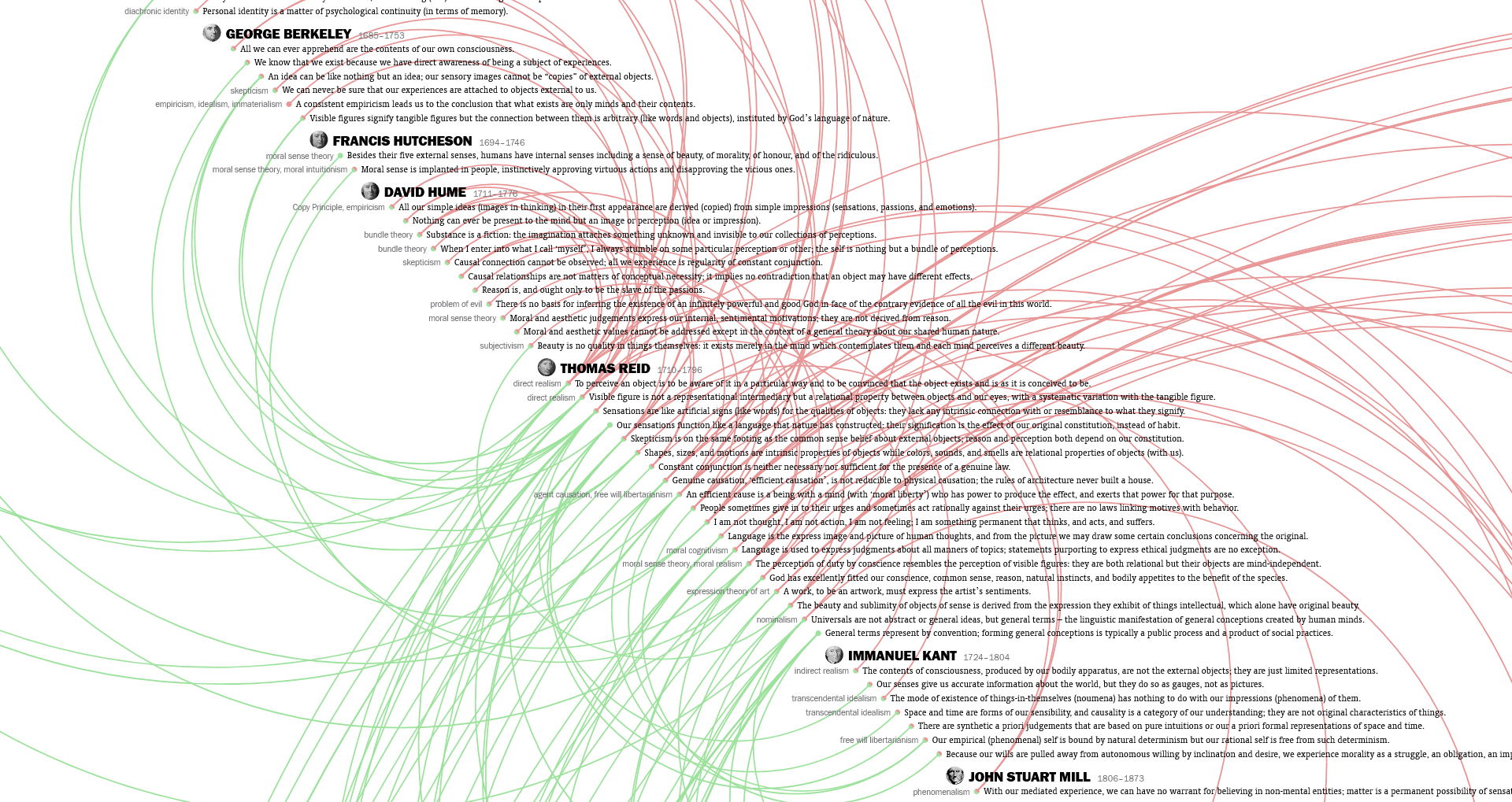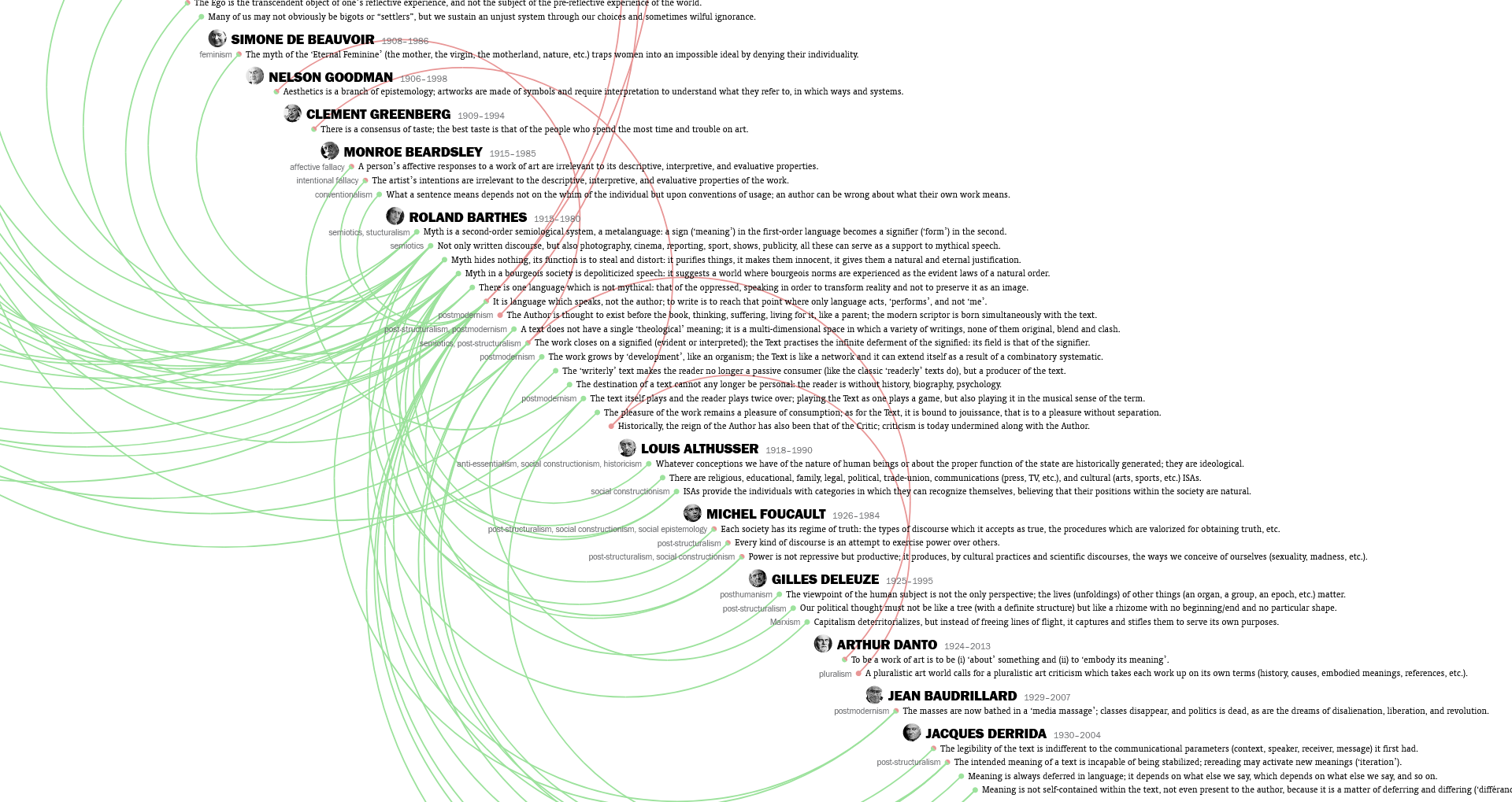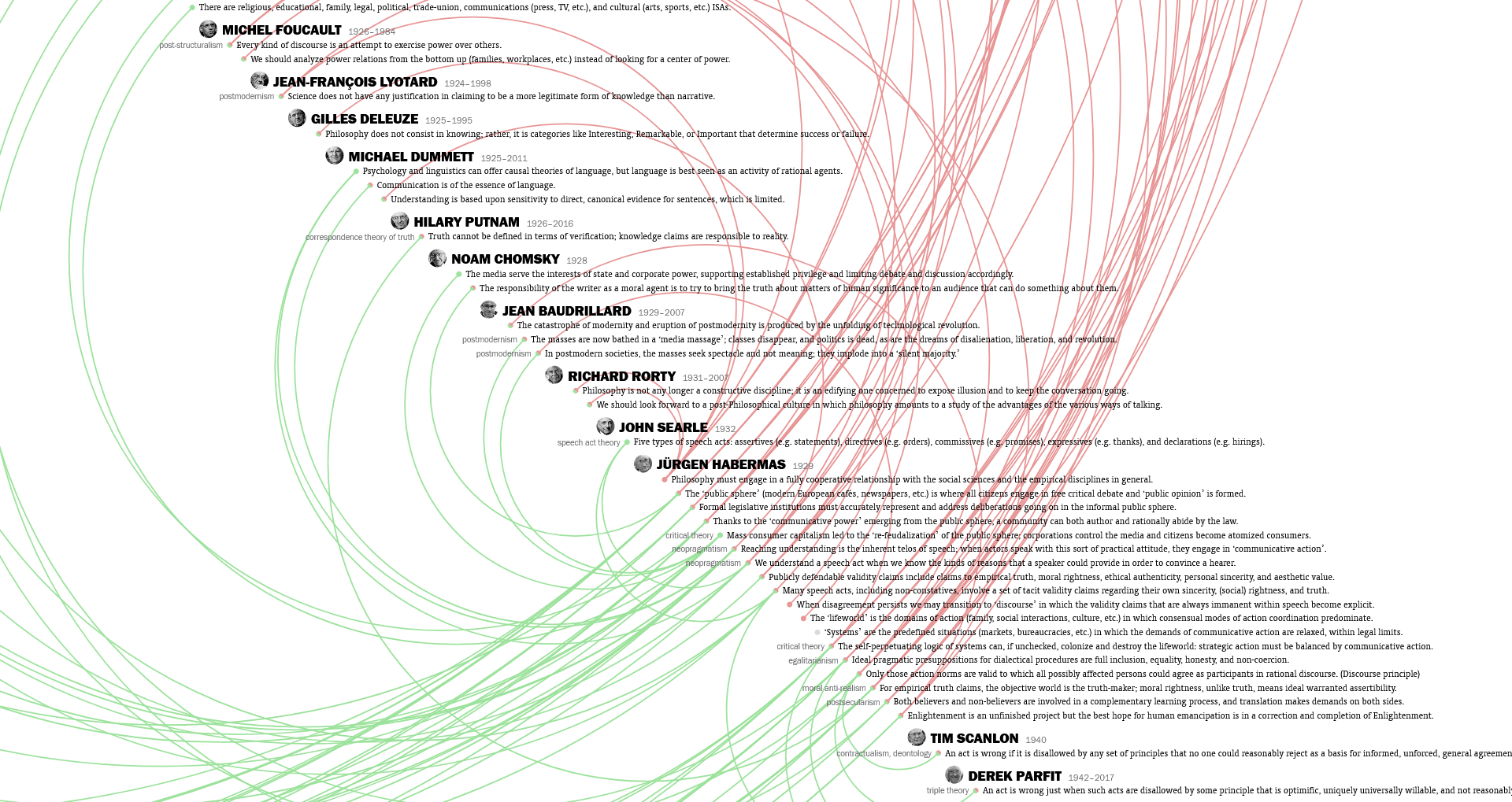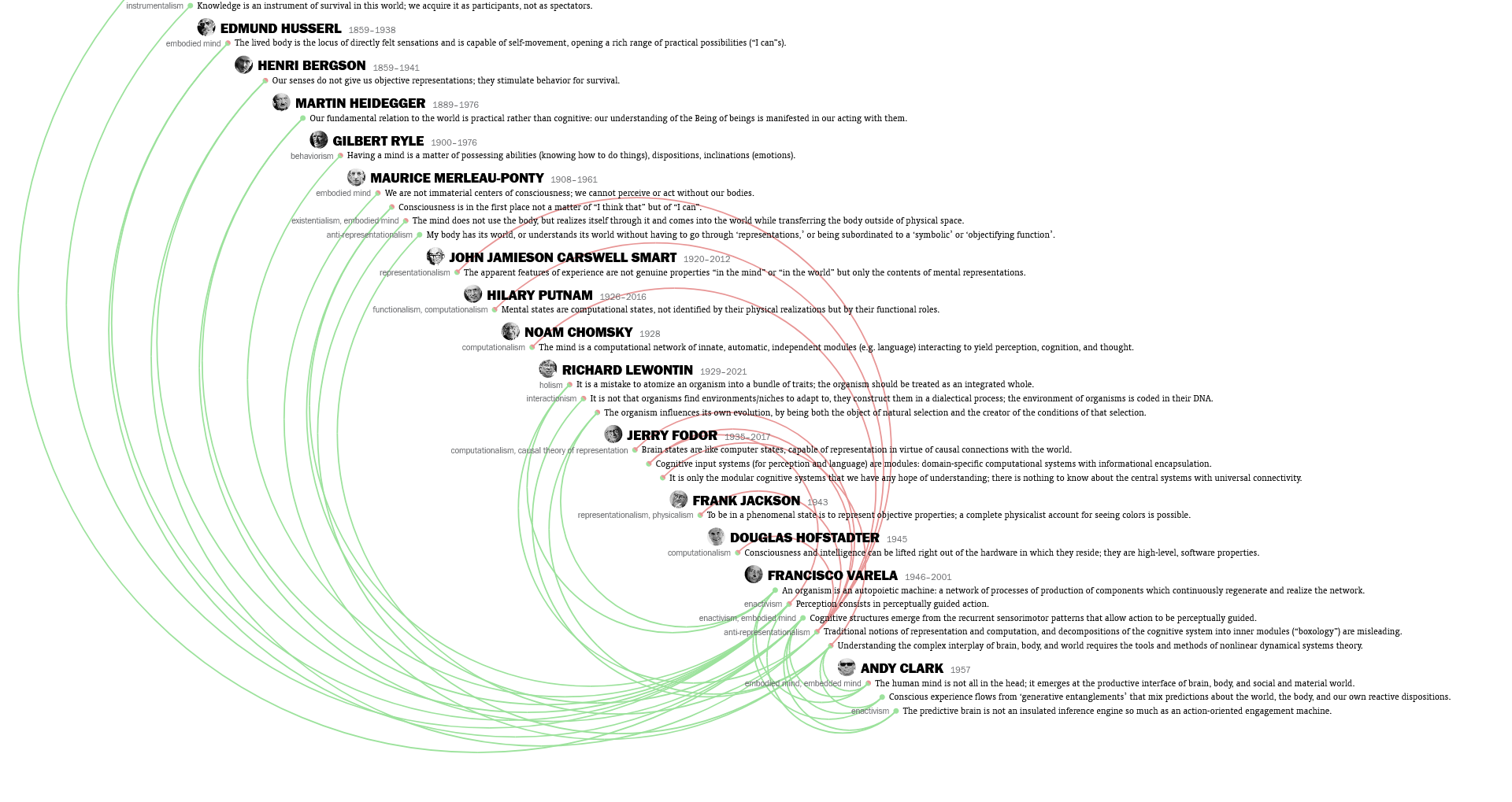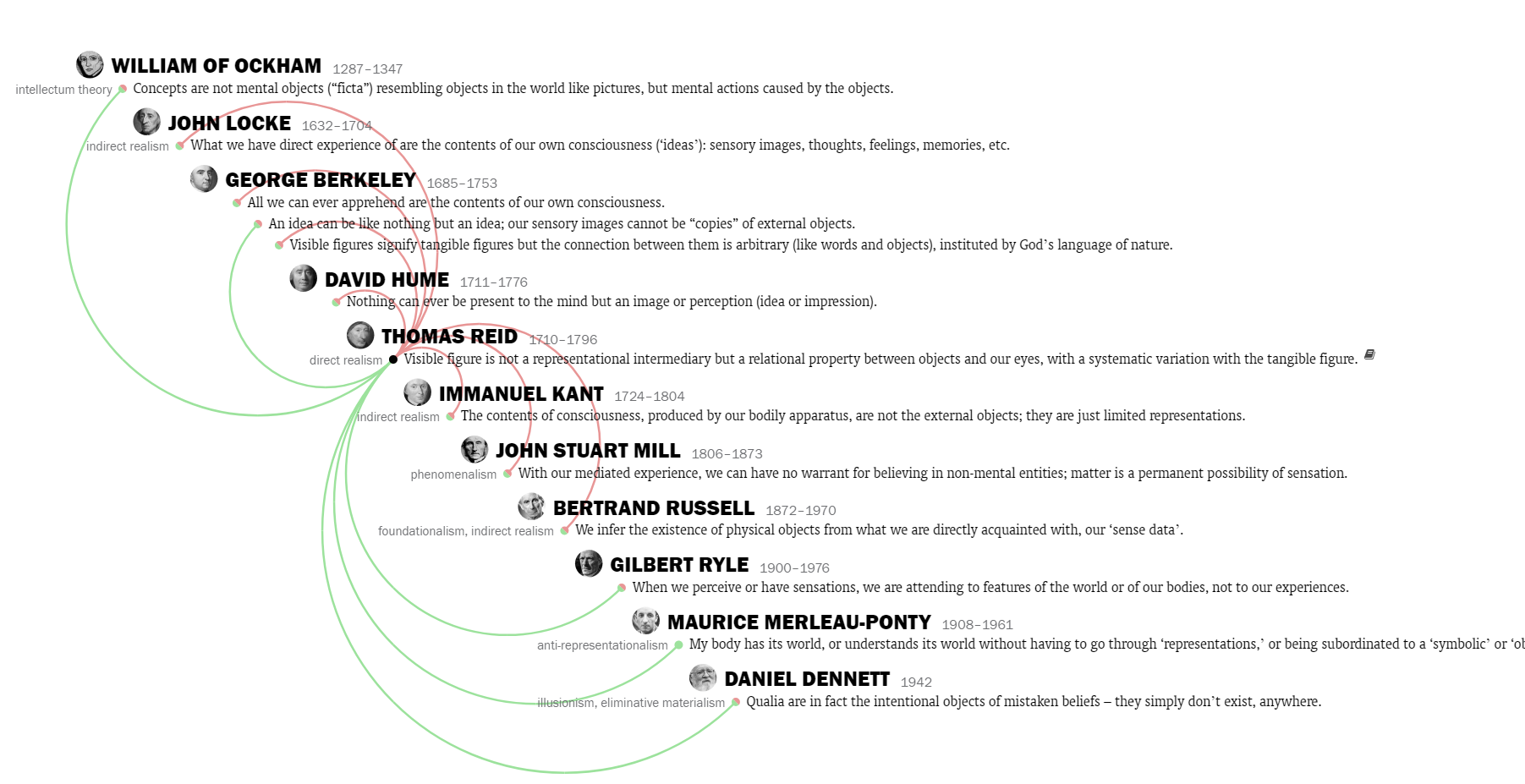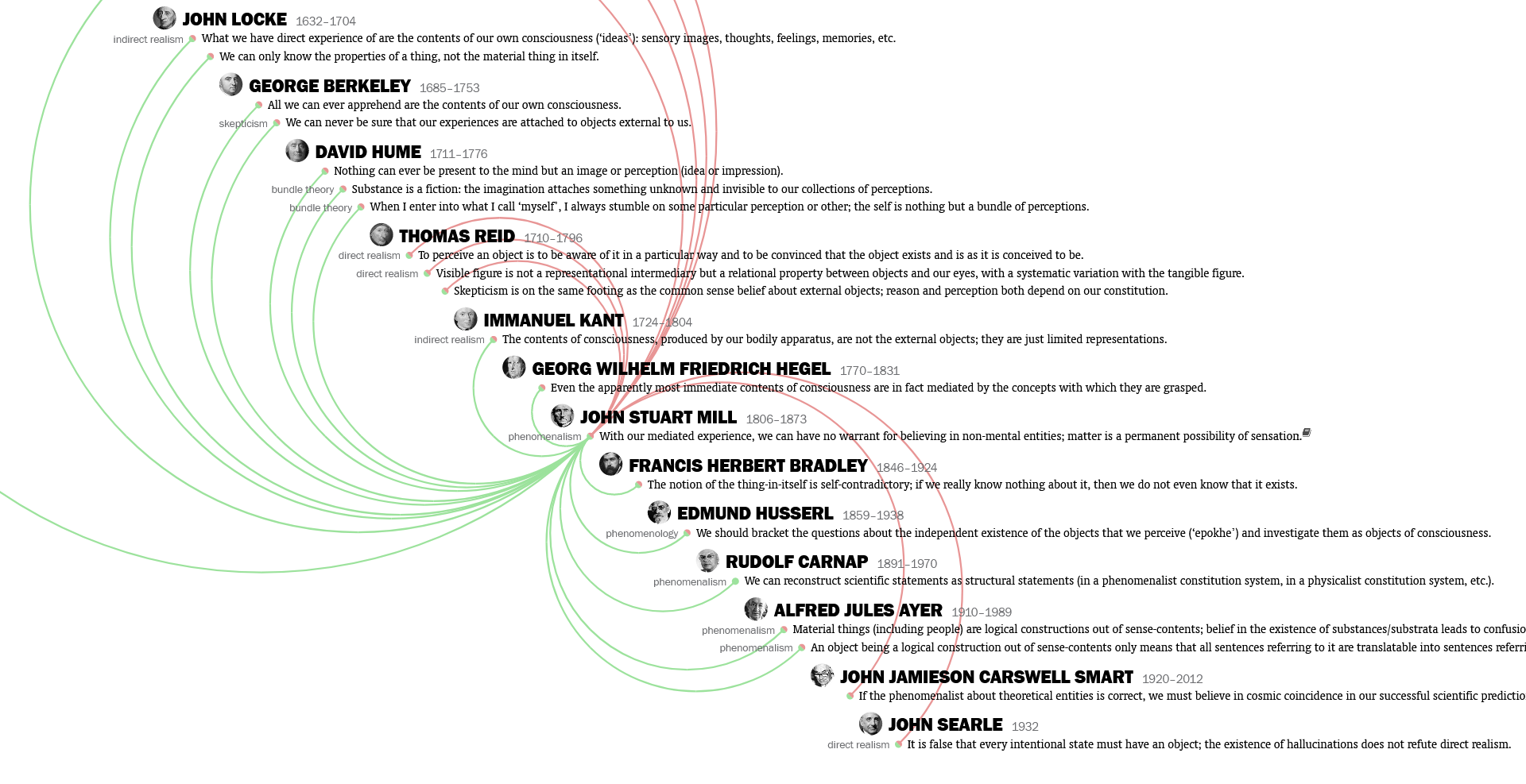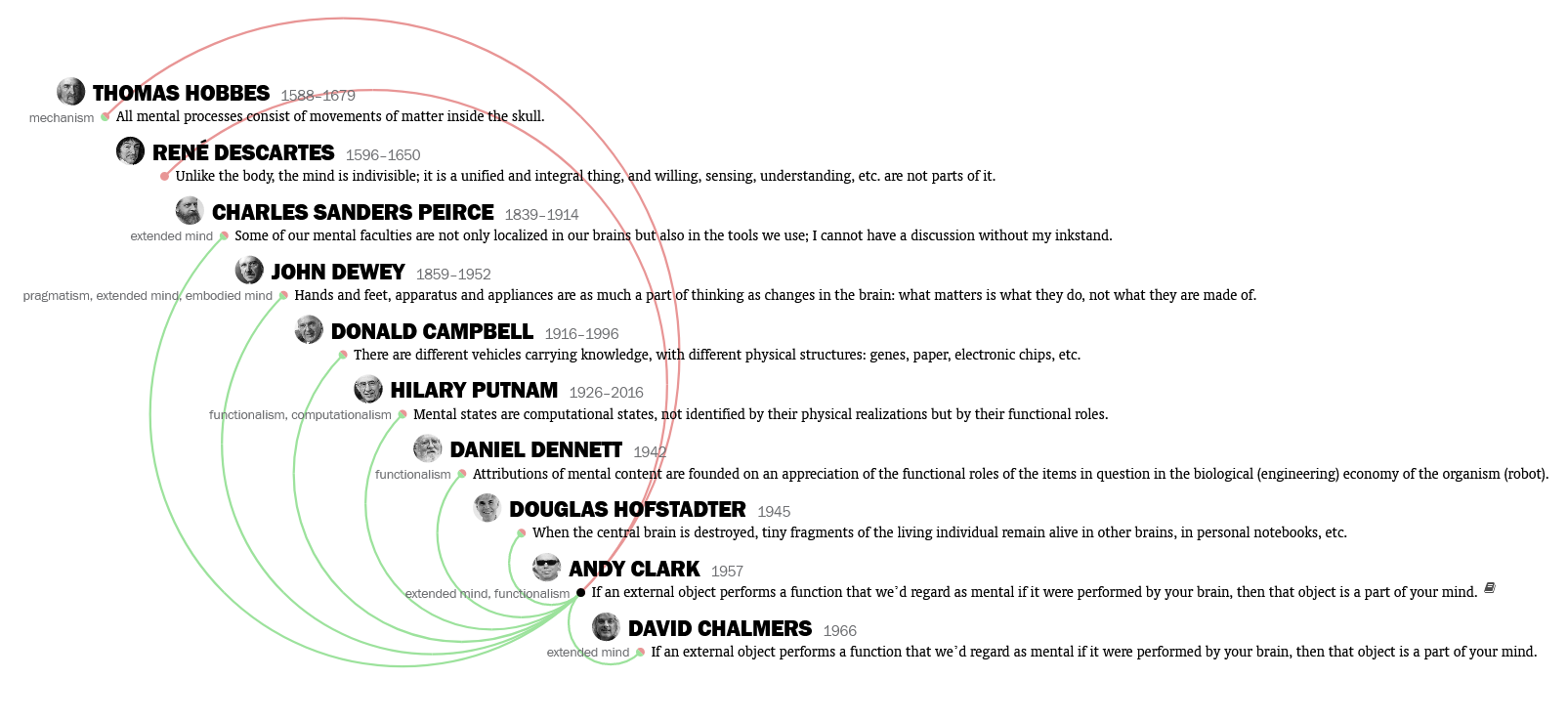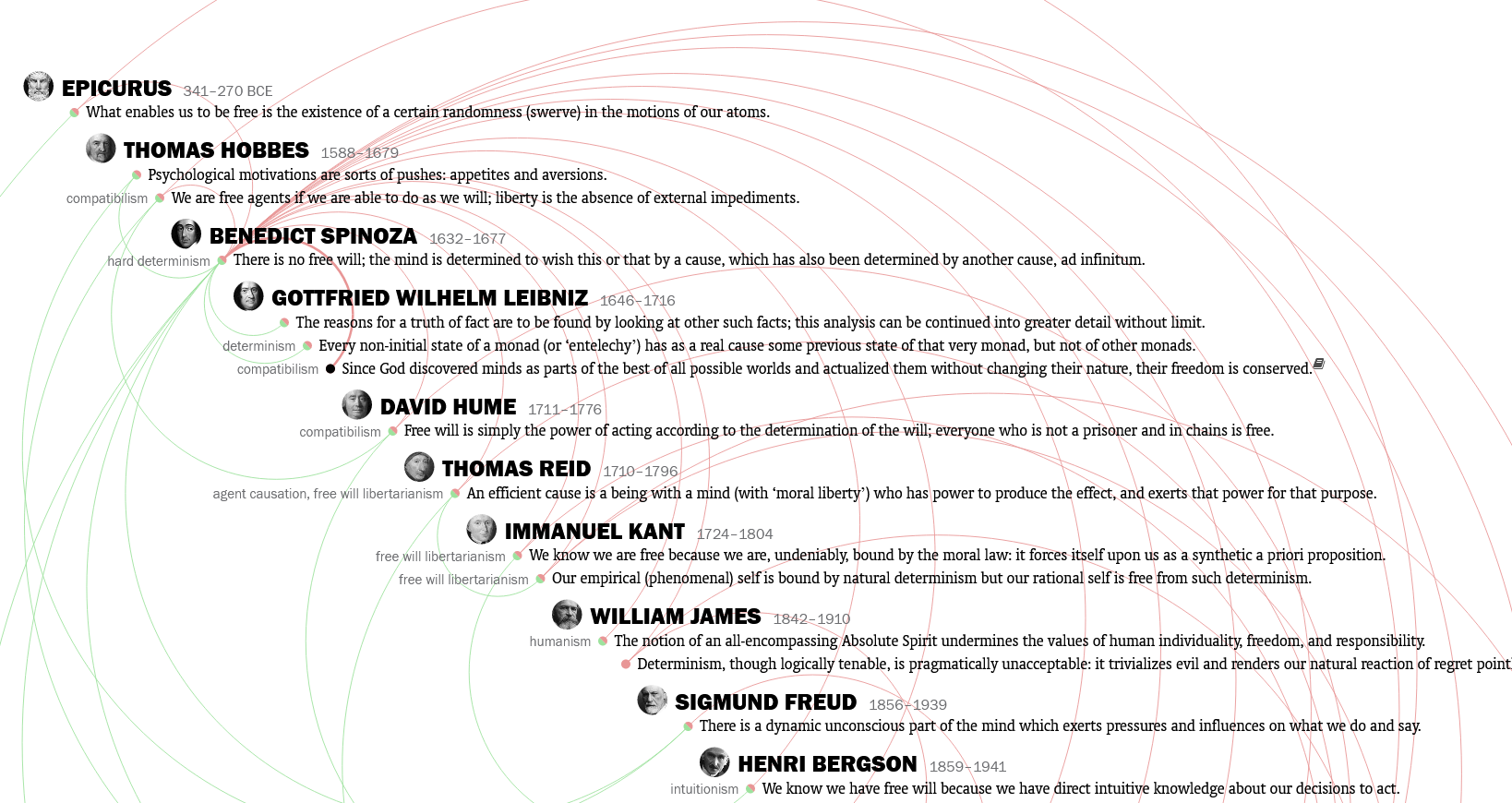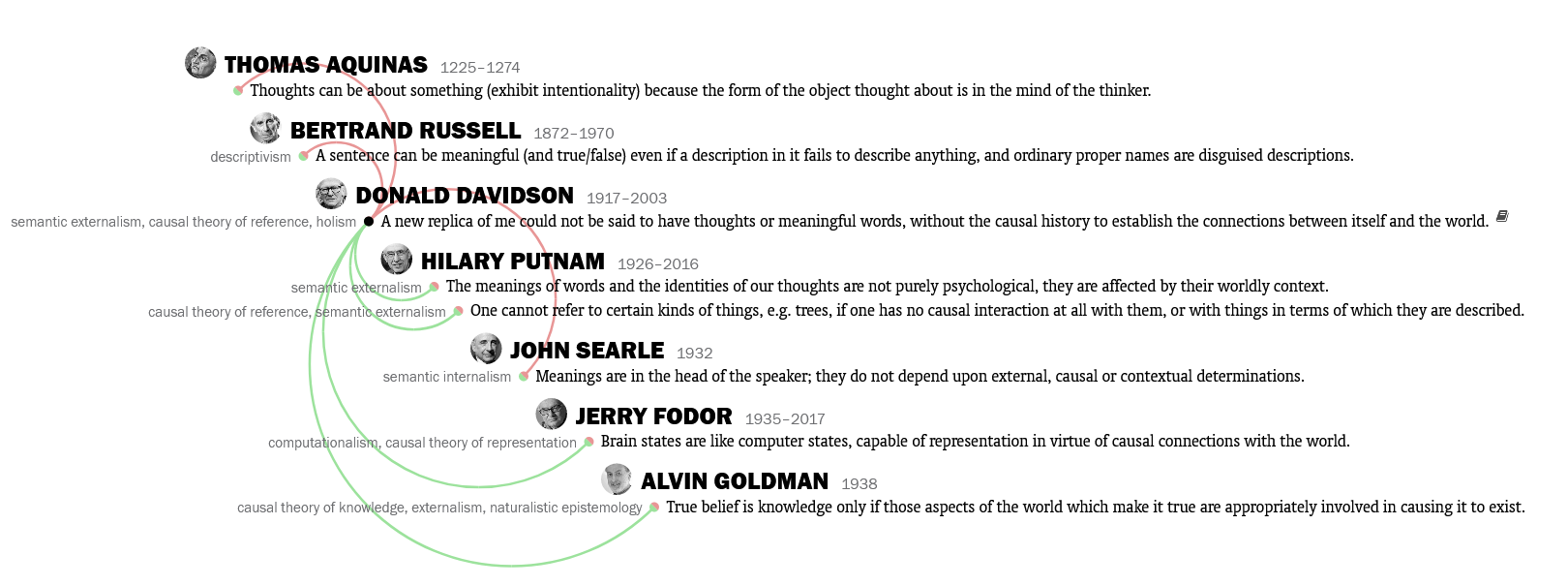Reid, Barthes, Habermas, Varela Added; Leibniz, Kant, Ramsey, Sartre, Beauvoir, Foot, Clark, and Others Updated
End of year is a good time for reports, so here is a belated one about the content changes I’ve made since May 2022:
- I added Thomas Reid, Roland Barthes, Jürgen Habermas, and Francisco Varela.
- I made substantive revisions with lots of new/edited sentences for Gottfried Wilhelm Leibniz (13), Immanuel Kant (14), Frank Ramsey (12), Jean-Paul Sartre (11), Simone de Beauvoir (10), and Maurice Merleau-Ponty (8)
- I added/edited sentences for Plato (3), Aristotle (2), Thomas Aquinas (2), Thomas Hobbes, Benedict Spinoza, John Locke (2), George Berkeley (3), David Hume (2), John Stuart Mill (3), Charles Sanders Peirce (2), Friedrich Nietzsche (3), Edmund Husserl (4), John Dewey (2), Ludwig Wittgenstein, Martin Heidegger (2), Rudolf Carnap (2), Carl Hempel, Karl Popper (3), Hannah Arendt (2), Elizabeth Anscombe, Donald Davidson (2), John Jamieson Carswell Smart (2), Philippa Foot (6), John Rawls, Harry Frankfurt (2), Richard Rorty (2), John Searle (4), Thomas Nagel, Robert Nozick, Frank Jackson, John McDowell, Tim Scanlon, Daniel Dennett (3), Paul & Patricia Churchland, Nancy Cartwright, Simon Blackburn, Martha Nussbaum, and Andy Clark (3).
- I drew 1216 new connections, making a total of 5194 (3170 positive, 2024 negative).
Highlights
Since we now have custom URLs for every network, this is the first post where I’ll use them as links you can easily visit by clicking on the screenshots.
Below are snapshots of our newcomers, Reid, Barthes, Habermas, and Varela.
Adding Reid was the result of my period of concentrating on philosophy of perception, which also led to additions/revisions for Locke, Berkeley, Hume, Mill, and many others representing various positions like skepticism, direct/indirect realism, phenomenalism, etc.
I found it very interesting that Berkeley and Reid have both talked very specifically about the arbitrariness of the signification relationships between “visible figures” and “tangible figures” in perception, using the analogy of the arbitrariness of the relationships between words and the objects they refer to – a central idea in later philosophy of language and semiotics which would be explored by many figures like Peirce, Saussure, or Grice. Berkeley argues that these significations are instituted by God’s language of nature, and Reid says they are the effect of our original constitution instead of habit. They even use the terms natural sign and artificial sign. I was surprised to discover that these ideas I had long known from Peirce’s and Saussure’s semiotics had earlier expressions in philosophy of perception 150 years prior.
Speaking of signification, we have some new/edited sentences around the issue of proper names.
After reading Embodied and Enactive Approaches to Cognition by Shaun Gallagher, I made many updates around 4E (extended, embedded, embodied, enactive) cognition; I introduced Varela, updated Clark and their connections to phenomenology and pragmatism – it was exciting to see the seeds of the extended mind concept in Peirce and Dewey!
I reread Leibniz’s work and made lots of revisions/additions. This paper by Julia Jorati was helpful in confirming my understanding about his brand of theological compatibilism.
Enlightenment has received some support with new sentences from its earliest and latest defenders.
I had read Harry Frankfurt’s On Bullshit in 2012 and loved it. His passing in July made me realize that his influential distinction from that essay was missing here – it was also in the same spirit as some of Arendt’s ideas I’ve recently added.
I tried to summarize Davidson’s Swampman argument (from “Knowing One’s Own Mind”). Even though “the attention Swampman has generated is quite disproportionate to his extremely brief appearance in Davidson’s writing” according to Malpas, it’s one of the popular denizens of the Land of Gedankenexperimente.
I also reread Dennett’s “Real Patterns” after years, carefully mapping his explicit references to other philosophers (Quine, Fodor, Davidson, Rorty, and Paul Churchland). This resulted in an informative network about his position regarding realism/instrumentalism. (Dennett doesn’t like labels, as he implies in the final sentences: “Now, once again, is the view I am defending here a sort of instrumentalism or a sort of realism? I think that the view itself is clearer than either of the labels, so I shall leave that question to anyone who still finds illumination in them.”)
Let’s end with a meta-update: After I finished the update on Sartre and Beauvoir, I remembered there was a screenshot of this region in a 2018 Open Culture post about the project. Seeing the 2018 and 2023 versions together makes for a good illustration of what I mean when I say this is a never-ending work-in-progress.
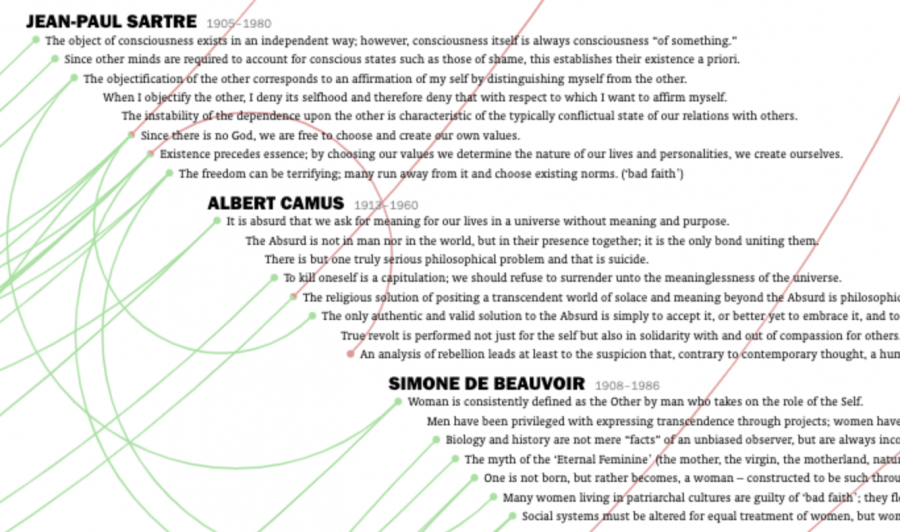
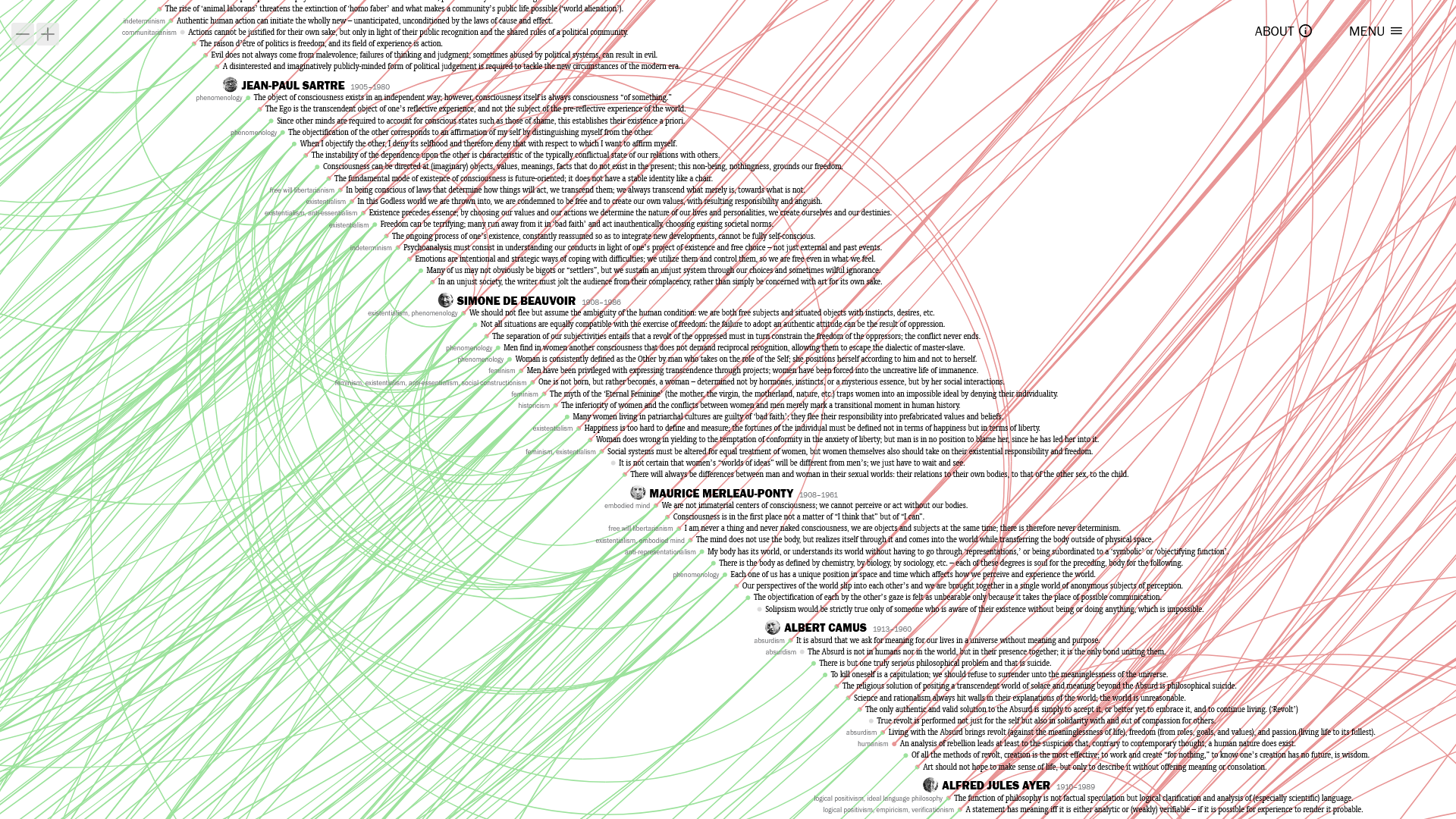
The usual reminder (which may become obsolete now that we have links everywhere): You can browse the whole thing here.
Happy new year!
Subscribe to Updates
Follow & Support
RECENT UPDATES
- Poincaré, Eddington, Gombrich, Laudan, Van Fraassen, Worrall, Ladyman Added; Anselm, Duhem, Grice, Williams, Kripke, Lewis, Boyd, and Others Updated
- ‘Basics’ Filter for the Uninitiated
- Reid, Barthes, Habermas, Varela Added; Leibniz, Kant, Ramsey, Sartre, Beauvoir, Foot, Clark, and Others Updated
- Dynamic URLs
- Getting Help From AI to Tag Sentences
- Interface & Content Upgrade: Tags, Improved Search, Dark Mode, and More


